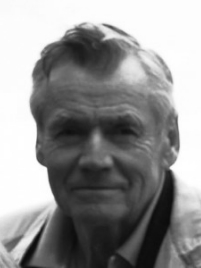Remembering Joseph T. O`Connell
By Ravi M. Gupta (Radhika Ramana Das) | Май 18, 2012

Prof. Joseph O’Connell suddenly passed away on Saturday 5 May, at the age of 72 in New York. He has been a friend to Vaisnavas in the Academy for decades. In1999-2000 he was the Academic Director at the Oxford Centre for Hindu Studies. He revisited the Centre as a visiting fellow in 2001 and once more last year, in the spring of 2011. He was an exceptional scholar, who did much for the study of Gaudiya Vaisnavism. He has published widely on the history of Vaisnavism in Bengal, and on the social and ethical issues in the Gaudiya tradition. Prof. O`Connell was Professor Emeritus in the Department of Religion at the University of Toronto, and in the last decade was a visiting professor at the University of Dhaka, Bangladesh, where he was instrumental in the development of a department of World Religions–a discipline that is largely non-existent in South Asia. He is survived by his wife, Kathleen O’Connell (a very fine scholar herself), a daughter and two sons. Prof. O`Connel met Srila Prabhupada several times while he was working on his PhD dissertation at Harvard (on the social implications of Gaudiya Vaisnavism), and always spoke fondly about him.
* * *
Prof. O’Connell was that mentor who transforms his students’ lives through his wisdom, strength of character, and affectionate guidance. Here are some of the ways he touched my life over the past 13 years.
Wisdom: Prof. O’Connell was my first teacher of Hindu Studies. I remember walking into his office one day at the Oxford Centre for Hindu Studies, frustrated at my lack of progress in deciding a topic for my doctoral thesis. “I want to work on the Sandarbhas,” I complained, “but I can’t figure out how I could contribute—everything important has already been said.” Joseph looked at me with a combination of affection and firmness, “Ravi, how much time have you spent carefully studying the text?” “Not enough,” I confessed. And then he advised: “Just go and spend time with text and enter its world. Don’t try to get something out of it—just dive into it. The text will speak to you.” That is exactly what happened, and I now give this same advice to my own students. It works every time.
Humility: Prof. O’Connell served on the examination committee for my D.Phil. thesis defense. The conditions for approving my thesis included a request I have never received from anyone else. “Ravi, you have two articles of mine listed in your bibliography that could not have been helpful to your topic. Please remove them.” In an academic world where self-promotion is the lay of the land, Joseph O’Connell was a notable exception. And that made him stand out from the crowd. It’s a lesson I will never forget.
Scholarship: Prof. O’Connell was, of course, one the founders of Chaitanya Vaishnava studies in the West, and this is the aspect of his work that I am most familiar with and most grateful for. But perhaps the most important thing that I learned from his work was not about the content of his scholarship, but rather the manner in which he pursued that scholarship. Joseph carried a deep respect for the people and traditions he studied. He listened to those whom he studied, gave them the benefit of the doubt, and worked with them to bring about effective change where it was needed. He demonstrated a mode of Religious Studies scholarship where the practitioner is not a patient to be cured, but a collaborator in a shared quest to understand our world.
Generosity: Prof. O’Connell gave his time to his students with seemingly limitless generosity and sincerity. Long after I finished my D.Phil., I would be knocking on his (email) door, asking for his advice on my current work, whatever it happened to be. No call for help ever went unheeded, regardless of where in the world he might be at the time. Recommendation letters were always written afresh, never ‘recycled.’ Draft articles I sent him received careful, detailed comments that went beyond the call of duty. Articles I requested from him were received on deadline (including his last work on Chaitanya Vaishnava ethics, received just a week before his departure). He did so much, and yet was always there when you needed him. For Joseph, scholarship was about building community.
Energy: My last physical memory of Prof. O’Connell is from the American Academy of Religion Meetings in San Francisco. We met outside a conference hotel, and then for dinner. “Ravi, I am over seventy now,” he said. “I must slow down.” And yet there he was, as I have always seen him—backpack slung over his shoulder, with intensity of purpose and the optimism born of faith, overflowing with energy.
I will miss him dearly.















